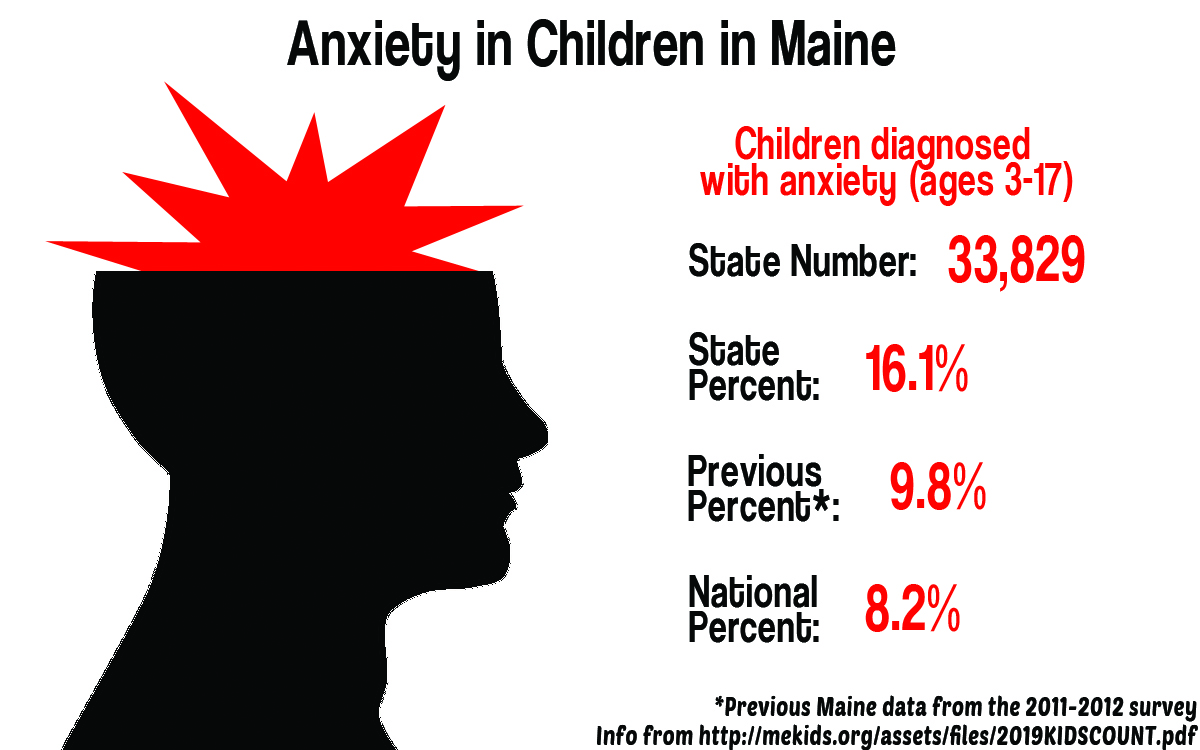By Hailey Wood, Staff Writer
Maine has the highest rate in the nation of children diagnosed with anxiety disorders and percentage of youth who access mental health counseling, according to the 2019 Kids Count Data Book. The state has the third highest rate of children with diagnosed depression.
33,829 children from ages 3-17 have been diagnosed with anxiety disorders, making up 16.1% of Maine children.
“There are high anxiety rates among college students and that’s very similar to the anxiety rates in adolescents,” said Liza Little, Director of Counseling Services. “They are very high in adolescents and they continue to be high in adulthood and particularly young adulthood.”
Little said that now people have better access to counselors. “There’s self diagnosis and there’s access to information we didn’t have 20 years ago.”
According to Little, social media is attributed to an increase in anxiety in recent years. “We’ve got social comparison going on, kids comparing themselves to other people on facebook, feeling crushed when they don’t get enough likes,” she said.
In the last twenty years, there have been more reasons for stress and anxiety than in the past, Little explains. “One of the other major stressors that’s different than what students had to deal with 15 to 20 years ago is the amount of debt students have to deal with, the concerns they have with paying that back and having to watch their parents go through the 2008 financial crisis,” she said.
Traumatic events cause an increase in anxiety. “Over the last 15 years we’ve had a dramatic increase in school shootings, suicides and celebrity suicides. People visualize tragic events at a much higher rate than years ago. That contributes to it, it makes people feel like the world isn’t a safe place,” said Little. “We’re exposed to a lot of traumatic information.”
When asked about ways to reduce stress, Little said ”Getting enough sleep is really important.”
According to a study from Harvard Medical School, sleep disruption has negative effects on the levels of neurotransmitters and stress hormones. These changes “wreak havoc in the brain, impairing thinking and emotional regulation,” Little said.
College students frequently do not get enough sleep, making them more susceptible to high stress and anxiety levels.
There are ways that students can try to cope with anxiety and stress. “One is to seek out counseling at USM, and we’re available to people monday through friday,” said Little. “In counseling we teach a variety of coping skills and stress reduction skills.”
Little encourages participation in Mindful Monday meditation classes and support groups for people with mental health issues, or substance abuse issues.

